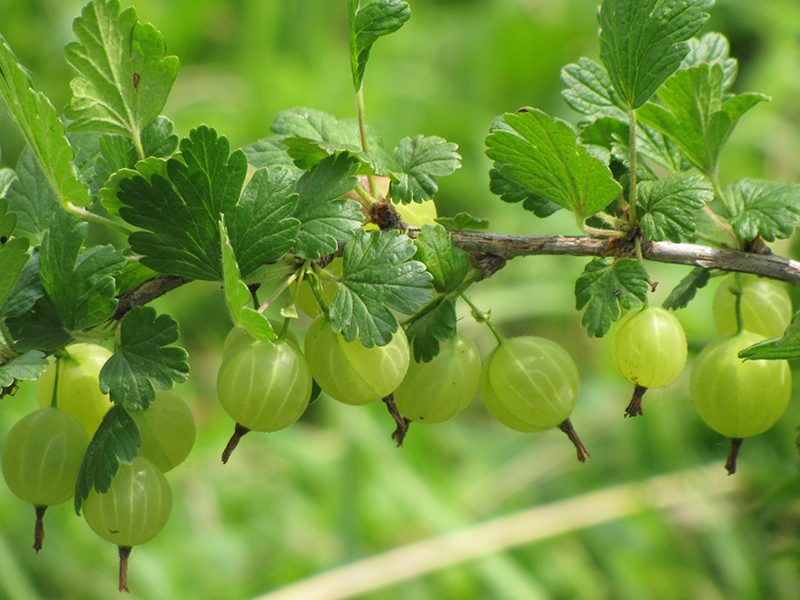Plant Finder
Hinnonmaki Green Gooseberry
Ribes uva-crispa 'Hinnonmaki Green'
Height: 4 feet
Spread: 5 feet
Sunlight:
![]()
![]()
Hardiness Zone: 3a
Other Names: Hinnonmaeki Green
Description:
An improved variety of gooseberry for the home orchard with large, light green fruit with sweet flesh and a tangy outer skin, increased resistance to powdery mildew and exceptional yields; very thorny, needs regular pruning for productivity
Edible Qualities
Hinnonmaki Green Gooseberry is a small shrub that is commonly grown for its edible qualities, although it does have ornamental merits as well. It produces clusters of light green round berries which are usually ready for picking from early to mid summer. The berries have a tart taste and a juicy texture.
The berries are most often used in the following ways:
- Baking
- Preserves
- Wine-Making
Features & Attributes
Hinnonmaki Green Gooseberry has rich green deciduous foliage on a plant with an upright spreading habit of growth. The lobed leaves turn yellow in fall. It features an abundance of magnificent light green berries in late spring.
This is a multi-stemmed deciduous shrub with an upright spreading habit of growth. Its average texture blends into the landscape, but can be balanced by one or two finer or coarser trees or shrubs for an effective composition. This plant will require occasional maintenance and upkeep, and is best pruned in late winter once the threat of extreme cold has passed. It is a good choice for attracting birds and butterflies to your yard. Gardeners should be aware of the following characteristic(s) that may warrant special consideration;
- Spiny
Aside from its primary use as an edible, Hinnonmaki Green Gooseberry is sutiable for the following landscape applications;
- Orchard/Edible Landscaping
Planting & Growing
Hinnonmaki Green Gooseberry will grow to be about 4 feet tall at maturity, with a spread of 5 feet. It has a low canopy. It grows at a medium rate, and under ideal conditions can be expected to live for approximately 15 years. This is a self-pollinating variety, so it doesn't require a second plant nearby to set fruit.
This shrub is quite ornamental as well as edible, and is as much at home in a landscape or flower garden as it is in a designated edibles garden. It does best in full sun to partial shade. It prefers to grow in average to moist conditions, and shouldn't be allowed to dry out. It is not particular as to soil type or pH. It is somewhat tolerant of urban pollution, and will benefit from being planted in a relatively sheltered location. This is a selected variety of a species not originally from North America.
